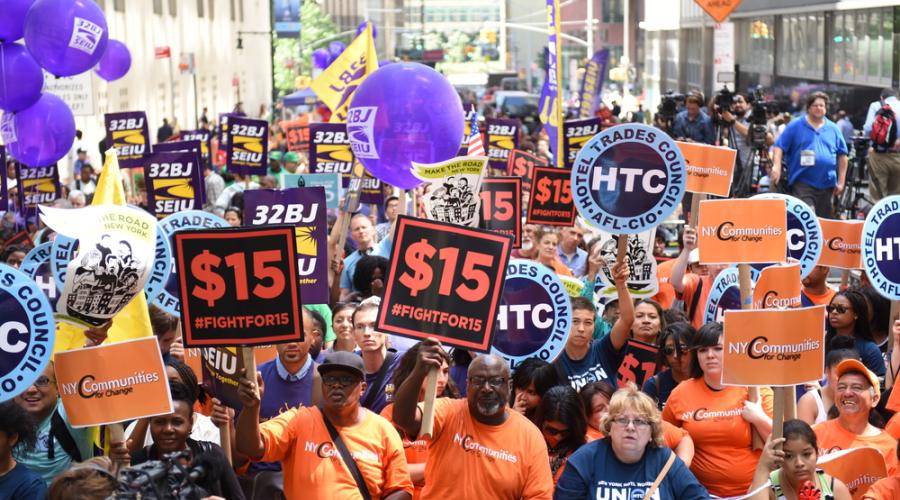
The Power of Labor
Most people reading this have participated in the workforce, are in the workforce, or will be in the workforce. Very few people are in a position where they do not have to work a day in their lives. While each of us has ideas of what our dream job is, I am confident that most people want a certain set of things from every job, whether it be a doctor or someone selling clothing – we all want management that treats us well. It's a simple idea. Everyone wants to be respected and treated professionally in the workplace, and unfortunately that is not the case. Many workers, low and high wage fear to speak out about injustices or negative experiences in the workplace for fear of retaliation. Many feel powerless or tied to their jobs for economic or health reasons and will subject themselves to potentially harmful treatment to maintain employment.
But why? Why must workers subject themselves to this? As someone intrigued by the labor movement and worker's rights, I have seen situations where people are trapped. A relative of mine didn't like how she was treated at her job, but needed the health insurance to fund an upcoming surgery. A friend of mine was verbally abused by her managers, and then when she quit they tried to withhold her pay and force her to continue working. These are just miniscule issues that go on daily. Another issue I have seen is with teachers returning to work in the fall. Questions flow about what the plan is, and will teachers be adequately protected. We are fortunate in New York State that masks are mandatory, but in many Southern states, masks are not mandatory, and in some cases, rarely worn. Many educators do not feel protected enough to re-enter the workplace safely.
The fight for protections in the workplace intersects so many other movements. How are Black and Minority Ethnic people treated in the workplace? How are women treated? How are LGBT+ treated? Last month, the Supreme Court ruled that people cannot be fired for being part of the LGBT+ community. Why did it take so long to institute that? Can we really say that we have a just workplace and work culture in America when just last month roughly 30 states allowed people to be fired because of how they identified. Many Black and Minority Ethnic people face discrimination in the workplace based on their hair to the point where New York and California banned race-based hair discrimination.
This is why I am a strong advocate for unions and stronger labor laws. Yes, discrimination in the workplace occurs in many other countries, but look at France as an example. Unionization is low in France, but 97% of workers are covered by collective bargaining agreements, and workers are able to "strike" when they deem the work conditions unsafe. The French model brings the power back to the people, those who are not in management positions, those on the front lines. Unions do the same thing in the United States. Unions bring worker solidarity and the ability to effectively collectively bargain against your employer, to have a voice when fighting mistreatment in the workplace.
When we enter the workplace, we need to ask ourselves if we are treated properly at work and rise up together for better conditions. Why should we settle for less than what we are worth?
Be a catalyst for change.